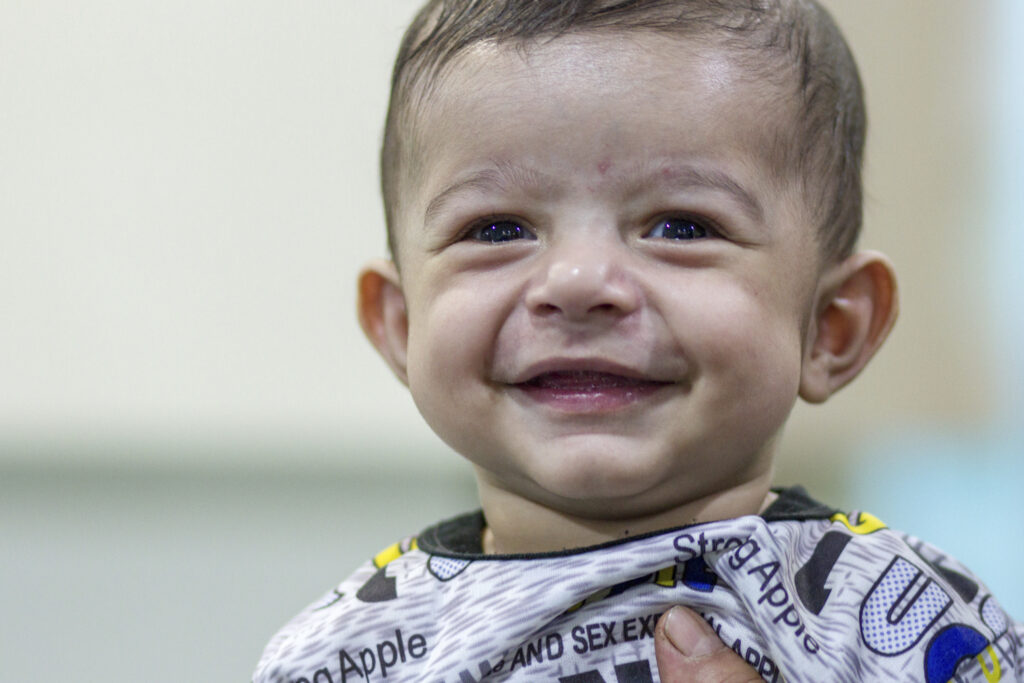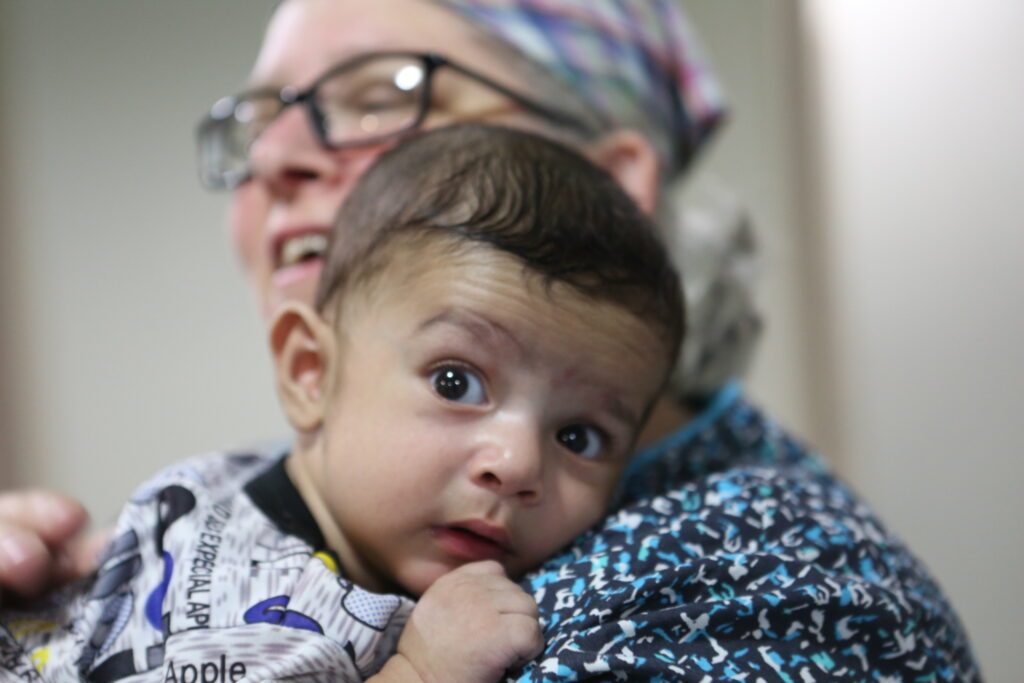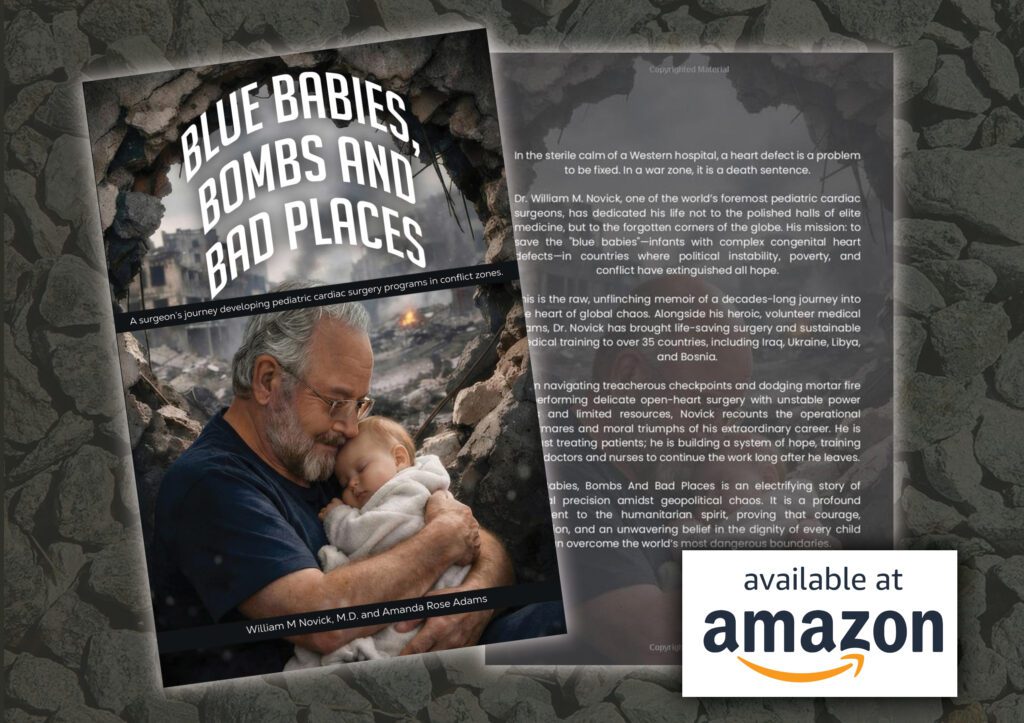Hasen sits in his grandmother’s arms, bored and making a terrible fuss.
“He was born with three holes in his heart.” His grandmother tells us what we’ve already seen on the ultrasound scan. She was tired, weary. The strain of life and her grandson’s heart problems are nearly too much to bear. Hasen was supposed to have surgery later that day, but not long after our visit, his surgery was cancelled.


One of the most difficult parts of our work is assessing which children get surgery. Together with the local surgical team, we decide that because of the complex nature of his heart defects and surgery needed to fix them, Hasen will need to be in recovery for much longer than we will be in Iraq. We can’t perform surgery and leave him without the proper acute care while he heals.
Hasen is too sick to wait for our return in the new year. So a series of calls are made, and it is arranged that he will go to a neighbouring country to get surgery. It is the only option for Hasen, but comes with significant cost—physical, emotional, and financial.
Hasen’s father is a day labourer. He gets occasional construction work, but hasn’t had anything steady for a long time. When he leaves the country with his son to get treatment, his family will be without any income at all.


Sweet Hasen reminds us again why we work the way we do. Providing heart surgeries for children simply isn’t enough—equipping the local community to care for the health needs of their children is essential. So children like Hasen can get care in their own country, near their families and support systems.
Life now, sustainability in the future—this is the kind of long-term change you bring every time you donate.


